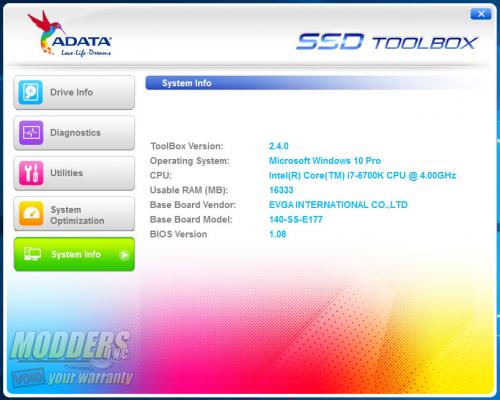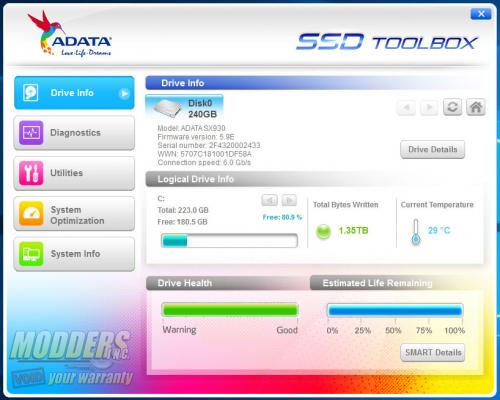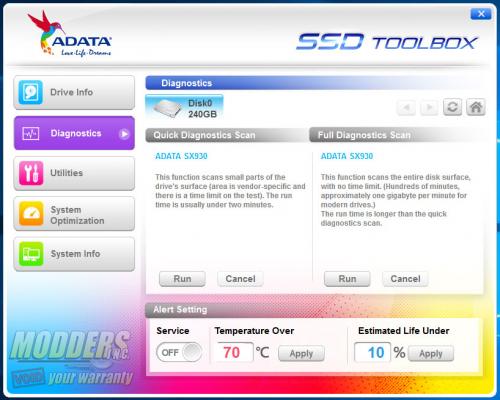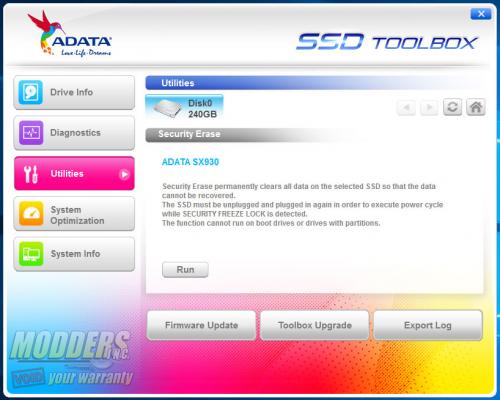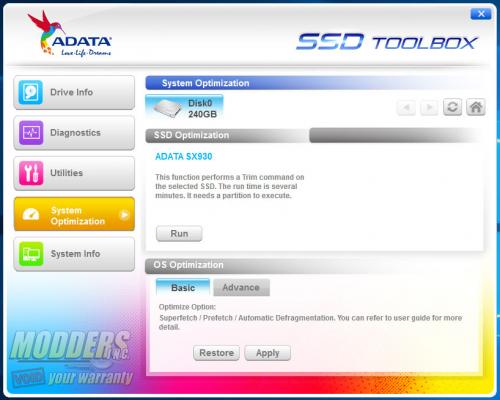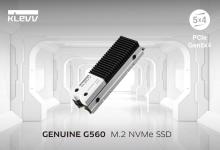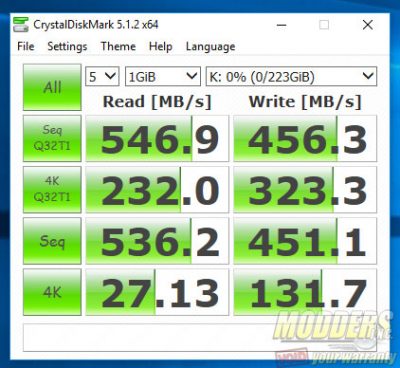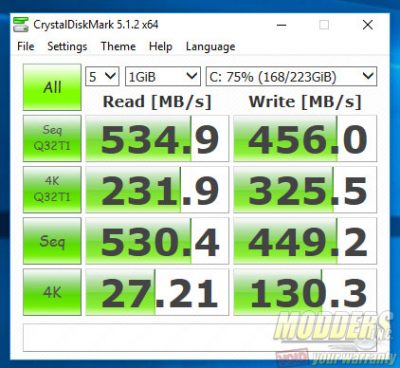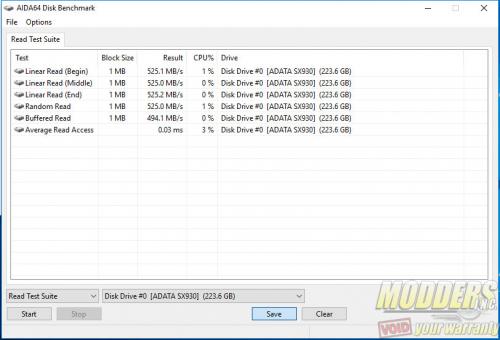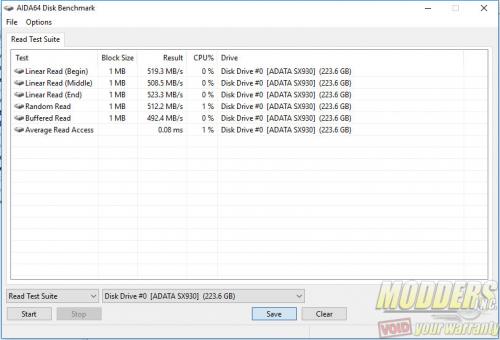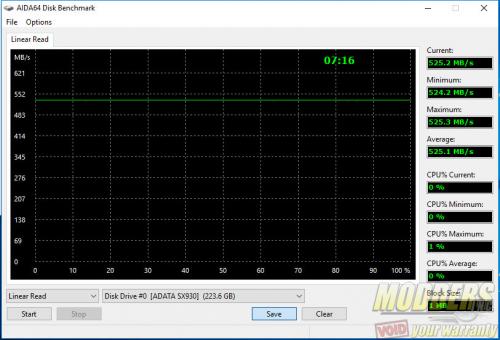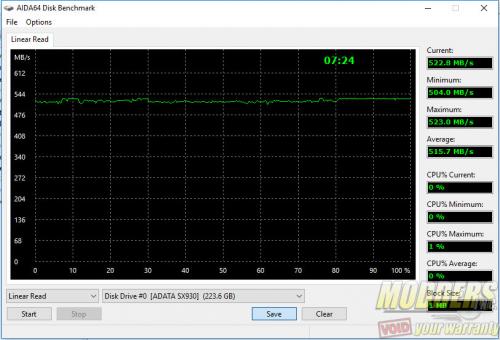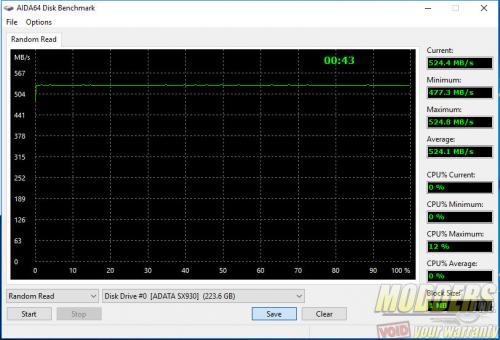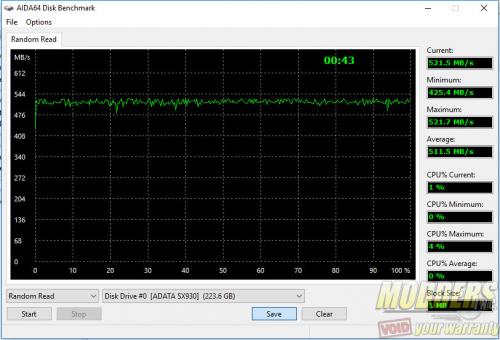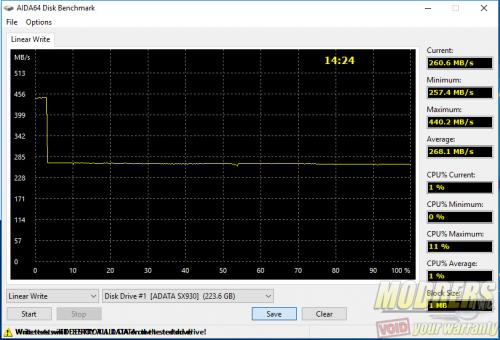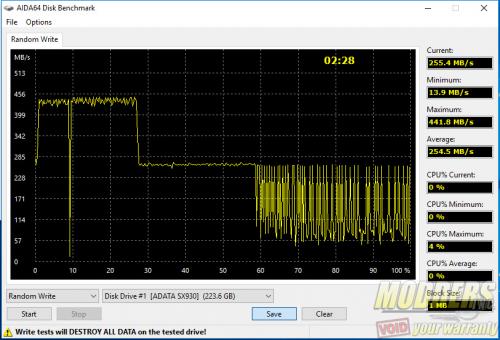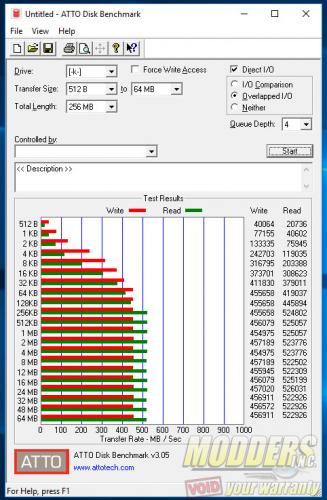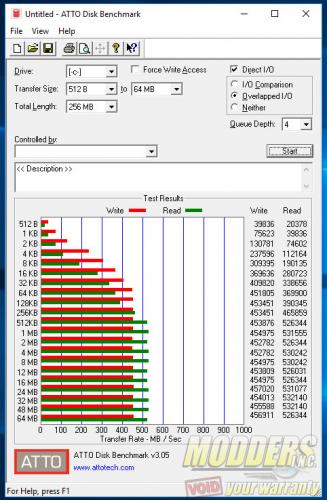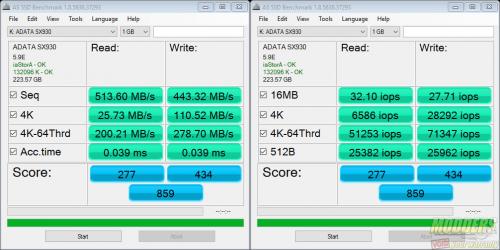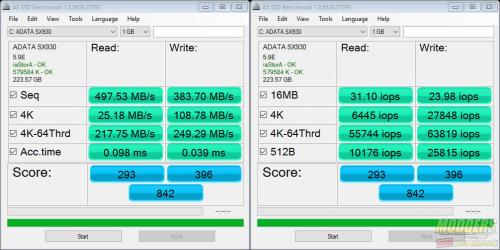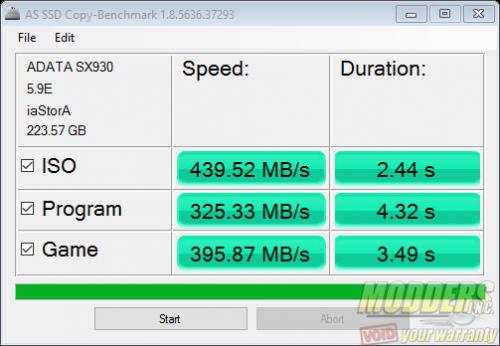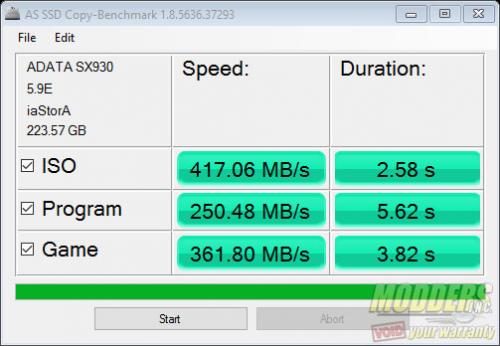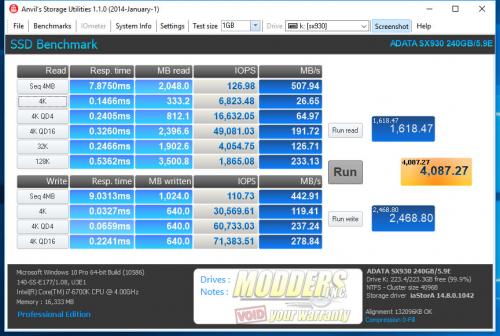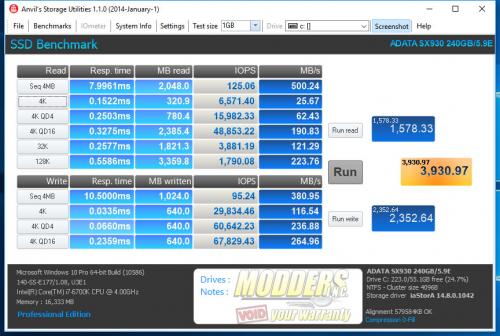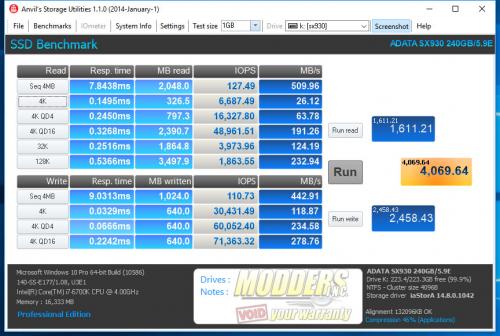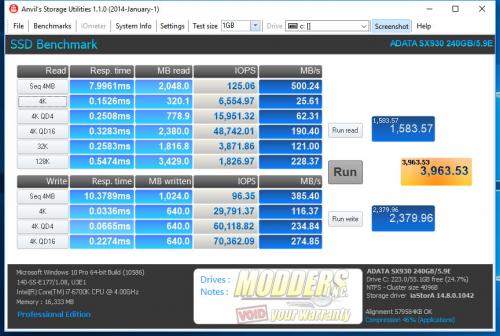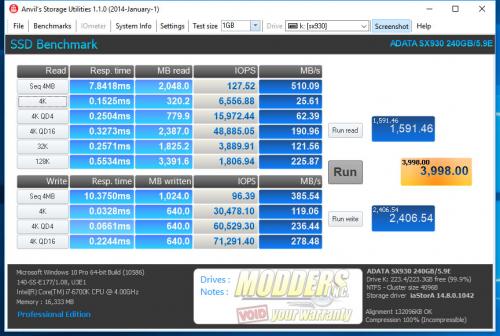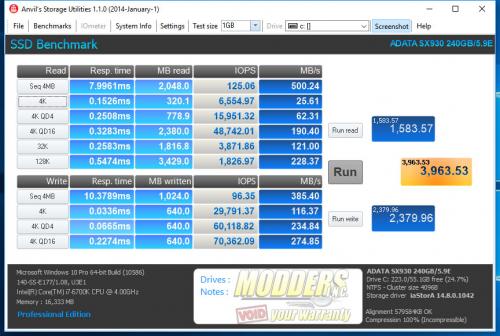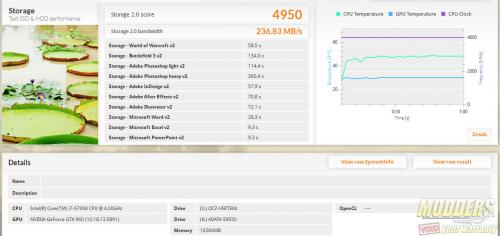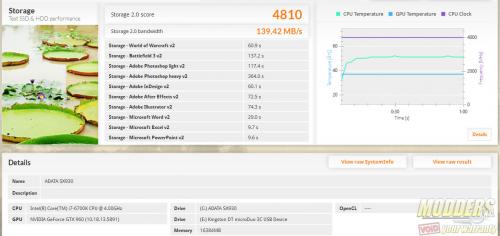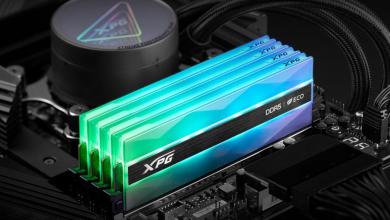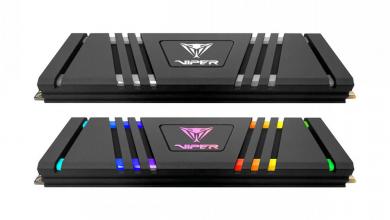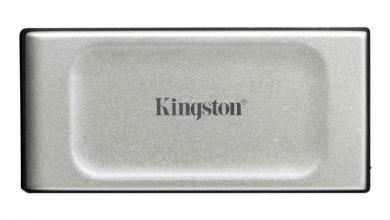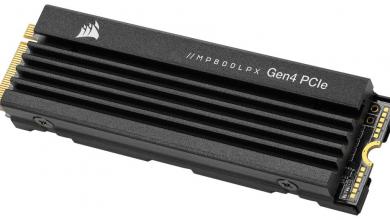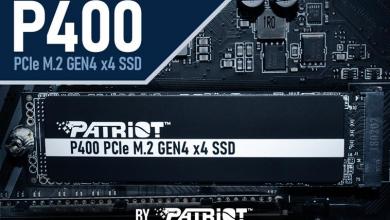ADATA XPG SX930 240GB SATA SSD Drive Review: Value Beyond Speed
Test System and Benchmark Results for the ADATA SX930 240GB SSD
Test SSD was connected via Intel SATA with Intel RST iaStorA 14.8.0.1042 drivers installed. C-states and EIST disabled for the Intel Core i7-6700K CPU and Windows power saving set to high-performance. The system is left to idle for a period of time after each run. Benchmarks are provided “as-is” in screenshot form for full transparency. As with the rest of our reviews, performance behaviour is the goal instead of simply direct comparisons. All the benchmarks here are easily reproducible and requires no special hardware that cannot be purchased by the public.
To simulate typical consumer drive performance, the operating system was loaded on the test drive and is written at least 5x its total size and settled to 75% capacity which will be compared with the fresh out of box/secure erased performance. All tests were performed at least three times for accuracy.
| Processor | Intel Core i7-6700K (ES) |
| Motherboard | EVGA Z170 FTW (1.08 BIOS) |
| CPU Cooler |
Noctua NH-D15S |
| Graphics | 2x8GB HyperX Savage 2666MHz DDR4 |
| Video Card | Gigabyte GTX 960 2GB |
| Drive | OCZ Vertex 4 (OS-Fresh out of box)
ADATA SX930 240GB 5.9E BIOS (OS-75%) |
| Case | DimasTech Mini v1 |
| Power Supply | Corsair HX850W |
| Operating System | Windows 10 Pro |
ADATA has an SSD Toolbox software free for download for monitoring, updating firmware and secure erasing an ADATA SSD. The drive info page shows a graphical overview of the drive health including temperature, bytes written and estimated life remaining.
While the SSD Toolbox and its utilities are compatible with Windows 10, secure erase can only be performed on a Windows 7 system. The toolbox version and firmware can be updated here as well as OS optimizations for those running a non-Windows 10 OS.
Crystal Disk Mark benchmarks read and write tests for sequential, 512K, 4K and queue depth 32 4K:
AIDA64 (formerly Everest) has a disk benchmark suite that measures read performance (in MB/s) and shows average read access. The test is set to 1MB block size.
ATTO disk benchmark is a 32-bit compressible data benchmark that measures read and write speeds across various file transfer sizes from 0.5KB to 8192KB to show SSD behaviour.
Unlike ATTO, AS SSD uses incompressible data for benchmarking and can measure read/write performance in MB/s or in iops. AS SSD also has a Copy Benchmark which simulates ISO, Game and program performance, providing both speed and access time results.
Anvil Storage Utilities is a comprehensive storage testing program that provides plenty of information and option for each test. For this review, 100% incompressible, 46% incompressible (simulating Applications) and 0-fill compression data were used to observe behaviour across.
PCMark 8 from Futuremark is a semi-synthetic testing suite that has a specialized Storage testing performance feature. It simulates storage performance while playing games, running productivity and creative programs and generates a total score based on how long each test took and the storage device behaviour during its 3-set run.
